Scottish schoolchildren join global climate protest
- Published
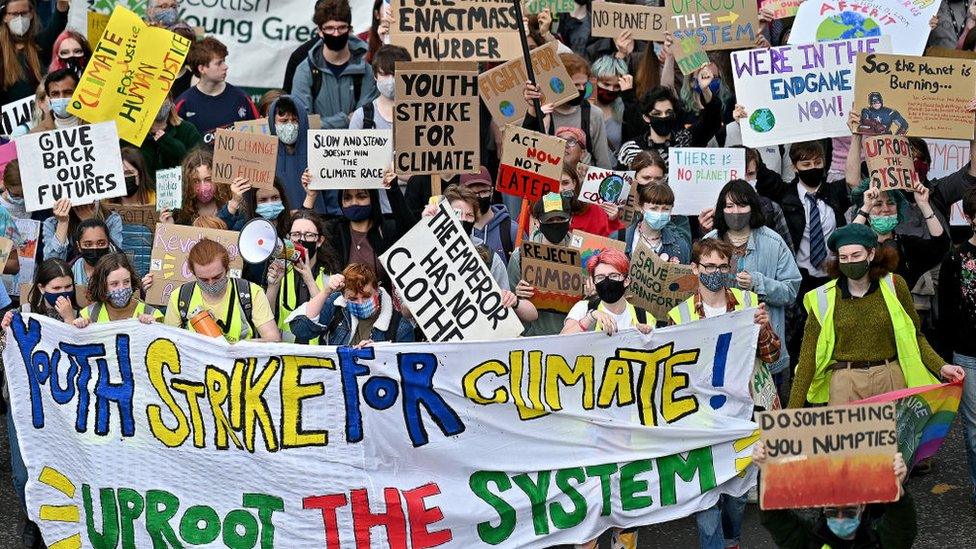
Protestors in Glasgow march towards the city's George Square
Scottish schoolchildren have joined young people around the world in a global protest demanding greater action on climate change.
The group, Friday for Future Scotland (FFS), held climate strikes in Glasgow, Edinburgh, Stirling and Ullapool.
The wider movement, led by teenager Greta Thunberg, is staging similar protests in 700 locations globally.
Friday saw the resumption of school strikes halted last year by restrictions during the Covid pandemic.
Children marched from Glasgow's Kelvingrove Park to the city's George Square on Friday.
Several hundred children also gathered in Edinburgh outside the Scottish Parliament in Holyrood.
The protests came five weeks before Glasgow is scheduled to host world leaders for COP26, the UN climate change conference.
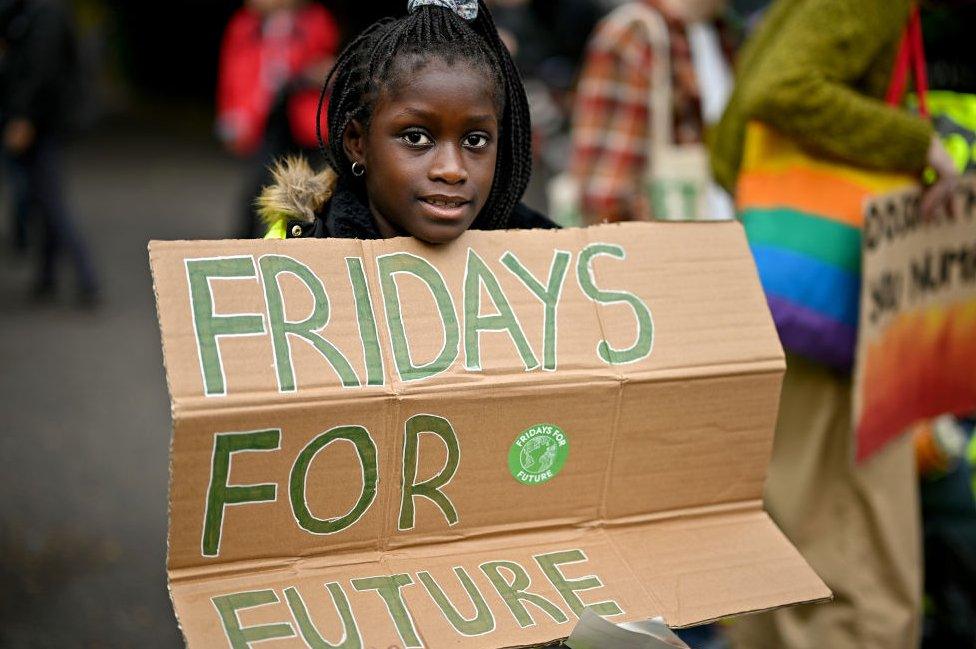
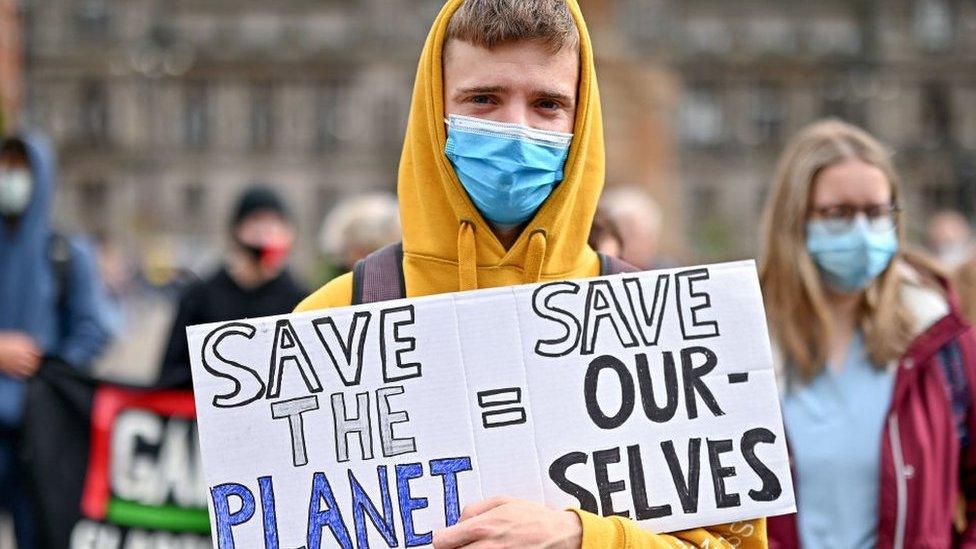
Leah Duffy, a 14-year-old from Glasgow, said she joined the FFS movement, external because of anxiety over climate change.
"I felt hopeless not doing anything," she told BBC Radio's Good Morning Scotland programme: "These school strikes are one thing that definitely bring a lot of people some hope and they are really important.
"It shows young people are willing to sacrifice their own education in order to get this message across and that we really do care about this - it isn't a joke.
"There is a lot of anxiety there for our generation. We are growing up in this world that is going to be highly affected by climate change, not to mention people already experiencing it in other places. It is definitely scary."
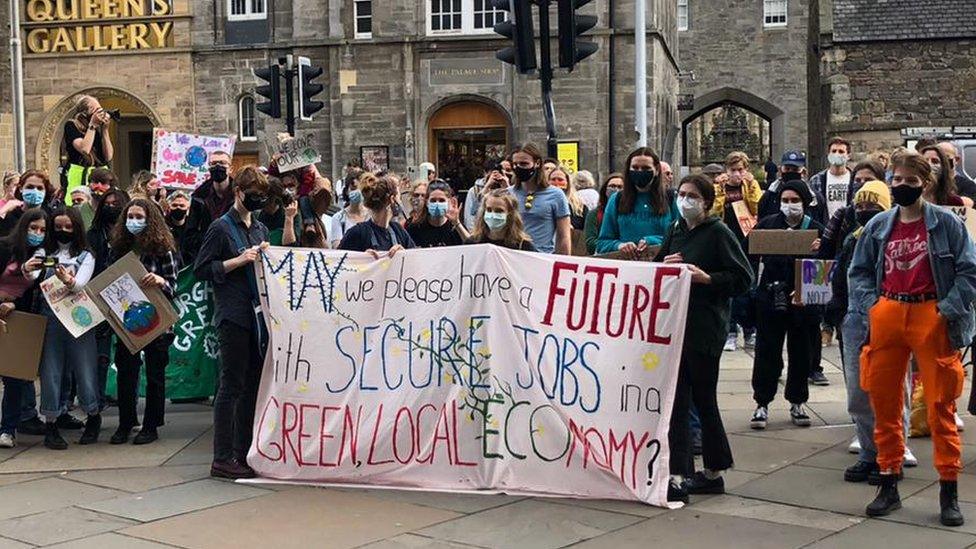
In Edinburgh young people made their feelings known outside the Scottish parliament
Sandy Boyd, a 17-year-old studying at Trinity Academy and one of the organisers of the Edinburgh protest, believes neither the Scottish government nor the UK government are treating climate change "like an emergency".
"We recognise the issue of climate change is a systemic problem which needs to be addressed," he told BBC Scotland. "One of the biggest challenges for our generation is how do we re-write that system.
"Missing school is making a statement that we are disrupting the system, we are rejecting the system. By striking we are saying 'the system is broken and we need to find a better way of doing things'."
After a series of one-day protests, Mr Boyd called on young people across Scotland to strike for a week during COP26, from Monday 1 November to Friday 5 November.
"I don't have high expectations of what will come out of that conference," he added. "But I think it is critical that as young people in Scotland, we are in Glasgow, we strike for that week and we call out world leaders on the inaction that will happen at COP."
The Scottish government says its targets to reduce emissions are some of the toughest in the world, with a pledge to reduce greenhouse gas emissions to net-zero by 2045.

At the scene in Glasgow
BBC Scotland climate change reporter, Harriet Bradshaw
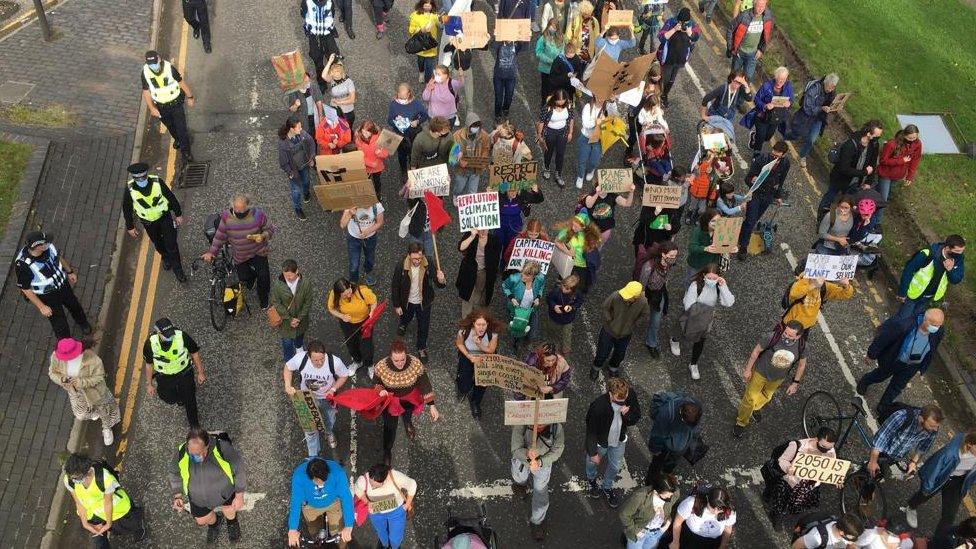
The passion on the streets of Glasgow is big, and so is the crowd, with an estimated 250 turning up today. Clutching banners and blasting chants through the megaphone, these young people want to be heard.
This is a stark reminder that as the global temperature rises, so does the heat of public concern. Those taking to the streets clearly have a burning desire to remind world leaders their time is running out. Because the scientists warn us the planet only has so long before the damage becomes irreversible.
They're not alone, with protestors in Edinburgh, Stirling, St Andrew's and the Highlands out in force today too. It's a significant moment for them - the first time they've taken to the streets in person since the pandemic.
The Scottish government and the UK government have both made supportive statements, and say they're committed to hitting targets to end our contribution to climate change.
This is just the beginning. The COP26 talks in Glasgow, now just a matter of weeks away, will certainly attract more voices calling for change.